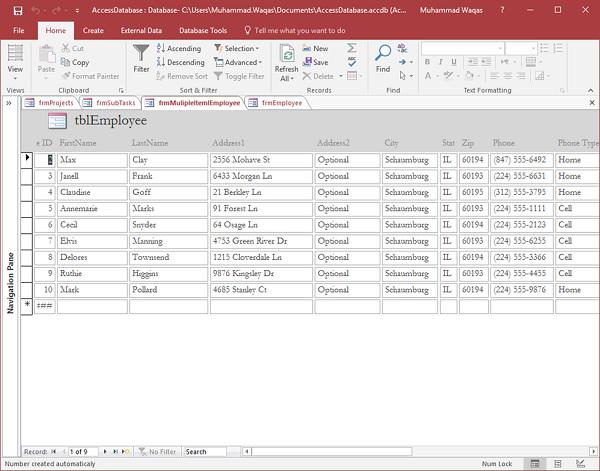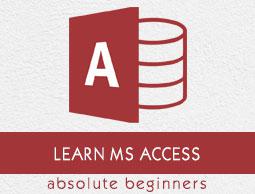MS Access - Modify Form
We have learnt several ways to create simple data entry forms. Although the forms ease the process of data entry; these may not serve other purposes that you would want. They may not be catchy or user-friendly for what you have intended.
- Upon creating a form, the first thing you will probably want to do is resize or move the controls around.
- You might also need to add a control or remove a control.
We will now discuss how to modify your form in an easy way.
Controls
It is merely a generic term used to describe any object on a form or report that displays data, performs actions or items used for decorations such as a line. In other words, a control is just about anything that is placed on a form or report.
The following can be considered as controls −
- Objects such as labels.
- Unbound or bound text boxes that you can use to add or edit or even calculate an expression.
- Command buttons that perform actions like Save, Open an e-mail or Print and these buttons are also known as controls.
- It is just a generic term for any object on a form or report.
We will now look at the different aspects of making a form presentable and understand how to edit and modify a form. Let us now open our Multiple Items form which lists out all employees from tnlEmployees.
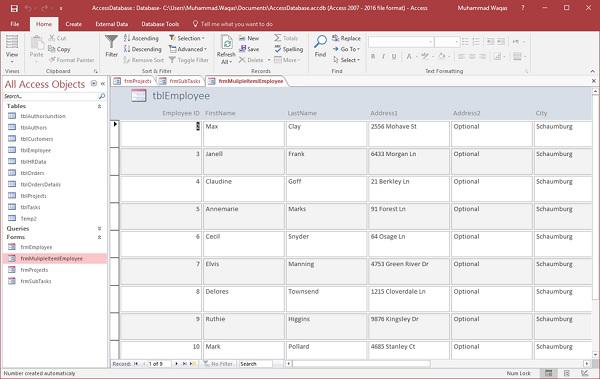
As you can see a list of employees, but doesn't really look like a very user friendly list. Our controls are oversized. They are too big, spaced apart and do not provide a very useful list view.
To edit the appearance of your controls on this form, you have two form views that you can use. In the Home tab, click the View drop-down.
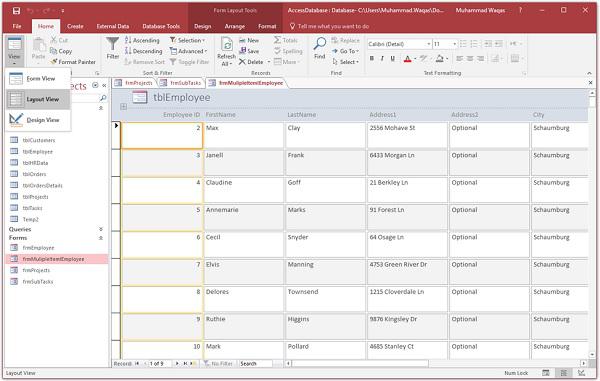
You have the Layout View or the Design View, and both of these views are used to edit your form. The Form View opens up by default; this is the view you will use to interact with or edit the underlying data source.
To edit the appearance of the form itself, we need to go to the Layout View first.
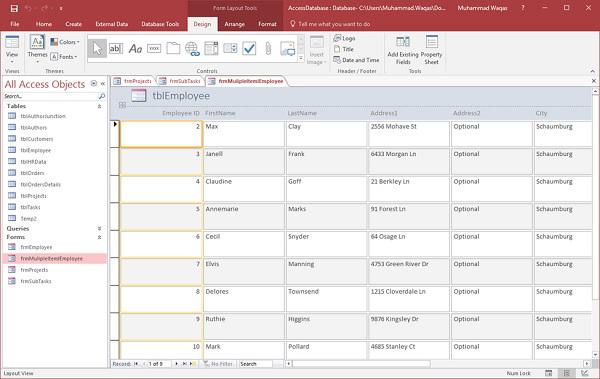
When you switch to the Layout View, you will see a series of contextual tabs appear.
At the top of Access, you will see an area marked Form Layout Tools with three tabs — Design tab, an Arrange tab, and a Format tab and each of these tabs have different options for formatting the look or appearance of the form.
When you take your mouse and click on any one of these controls, you will notice that Access will highlight a given area of that form and all controls within that area are shaded a light orange whereas the actual control that you select will be shaded darker than the previous one or have a darker orange border around where you click.
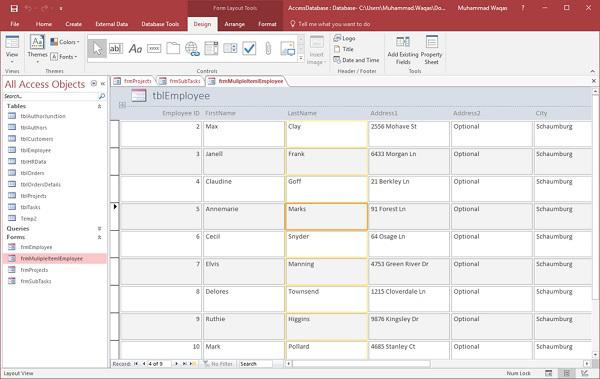
Here you can resize your controls as you want by clicking and dragging your mouse to resize the height or width or both of that one control.
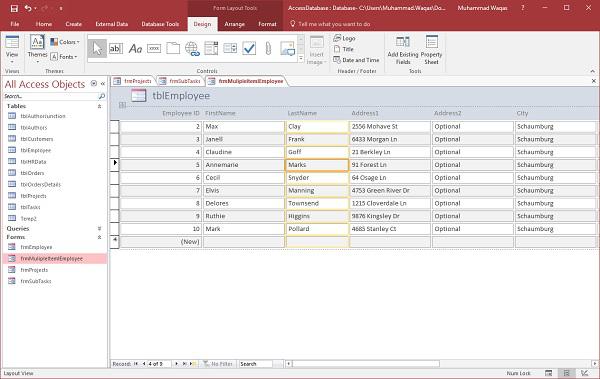
On this particular form, when you resize any single control, you also change the size of the rest of your controls on your form, this is because of how these controls are grouped. Let us now adjust all the fields the way you want by using the click and drag function of the mouse.
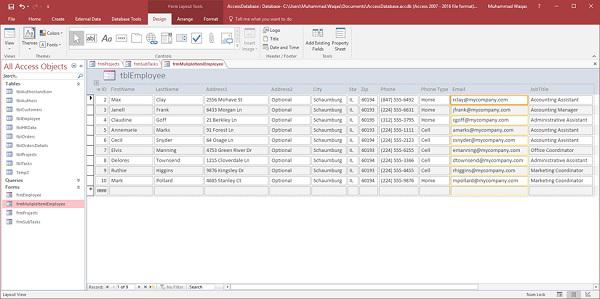
That is one quick way of editing the height and width of controls in your form from this Layout View.
Themes
In Access, there are some basic ways to format your forms by using built-in themes, colors, and font styles, customizing fill colors and shading alternate rows. Let us now open frmEmployees.
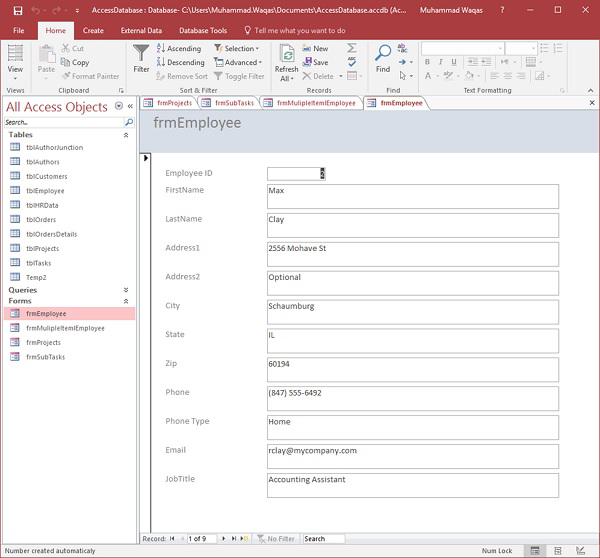
The forms that Access creates are plain and simple. They have a blue bar on the top and a white background.
If you want to see how else you can stylize these forms, you can go to the Design View or Layout View and explore some of the options you have on the Design tab in the Themes area.
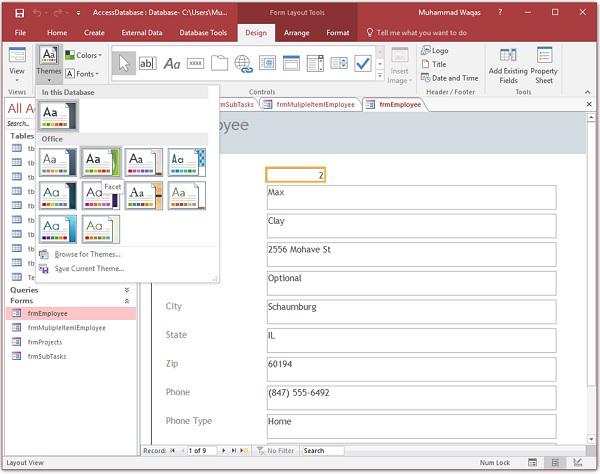
If you click on the Themes' drop-down gallery, you have many pre-created themes to try out from. Hovering your mouse over any one of them will give you a preview of changing things like colors and font sizes and the actual font used. To apply a particular style, simply click your mouse on it and you can see what that looks like.
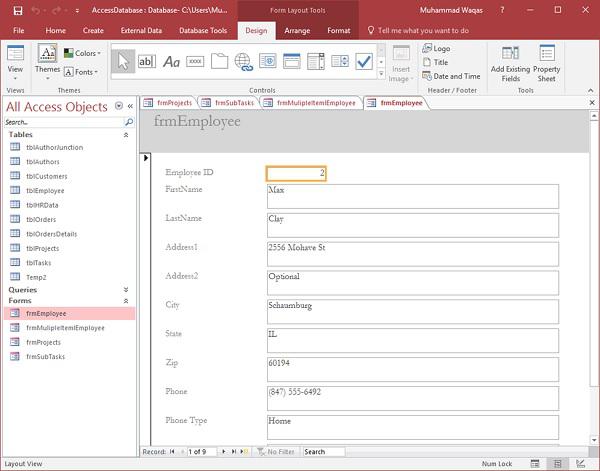
If you like the theme but you want to change the colors, you can adjust the colors by going back to the Themes group on the Design tab and choosing the color you like. You can also create custom colors to match your company's colors.
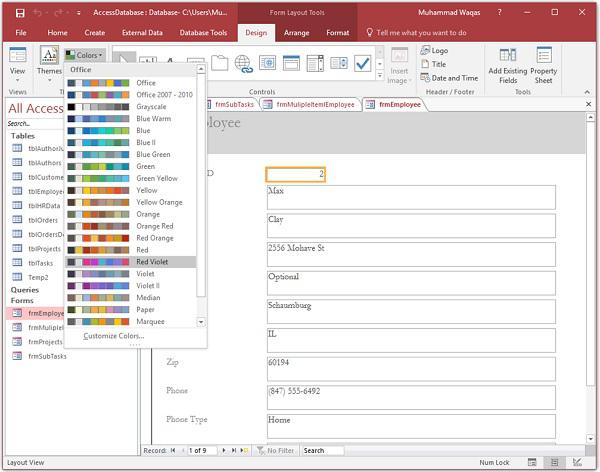
Similarly, you also have a series of font styles to choose from. You can choose one from the many that come prebuilt with the Office Suite or you can customize those fonts, choosing a specific heading font, a body font and even creating a custom name for that font group and saving.
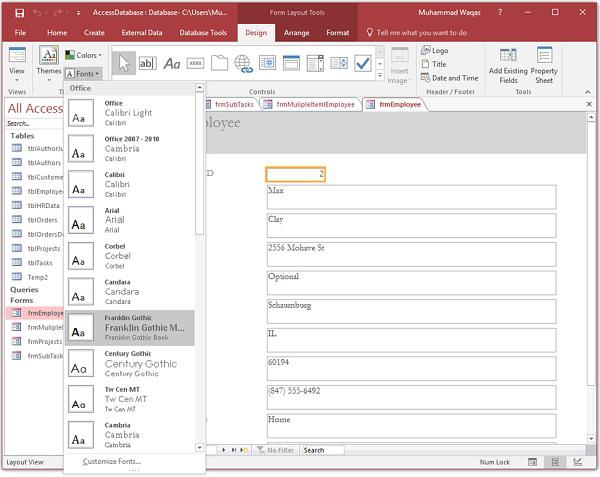
Let us go back to frmEmployees. In this form, you will see that every alternate row is shaded light gray.
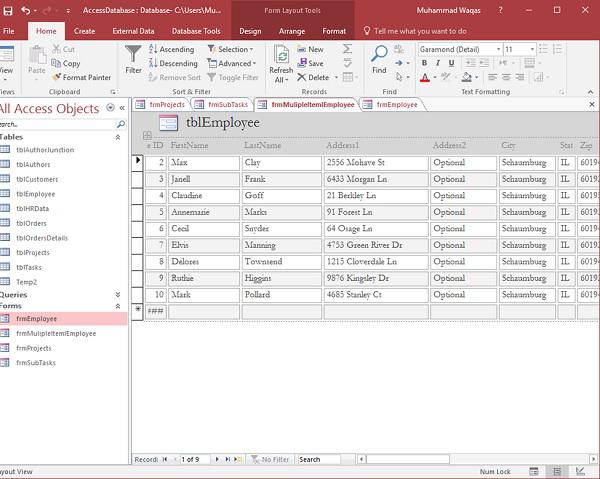
The formatting option is referred to as Alternate Row Color and if you want to adjust that in a multiple form, go to the Design View.
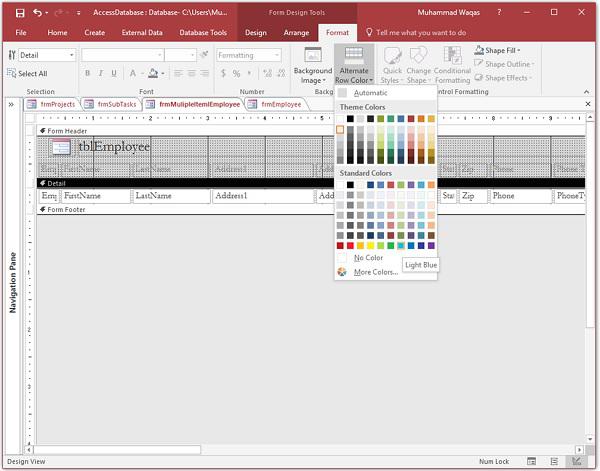
Select that detail section and then go to the Format tab and in background group you should see an option for Alternate Row Color. You can change the colors for alternate rows. To see what that looks like, simply go to the Form View or the Layout View.
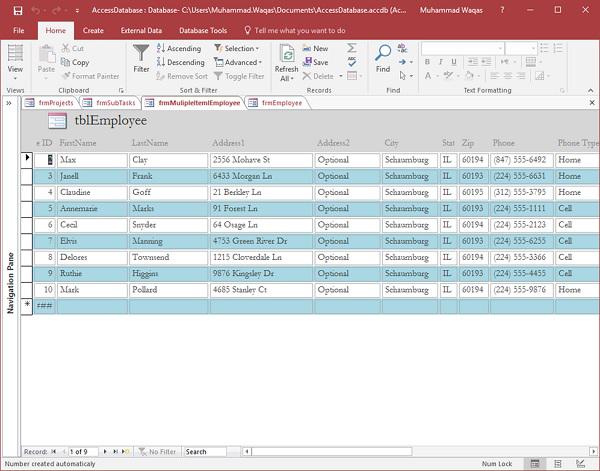
If you don't want any shading at all, you can choose No Color as your Alternate Row Color and that is more the traditional look from earlier versions of Access.
